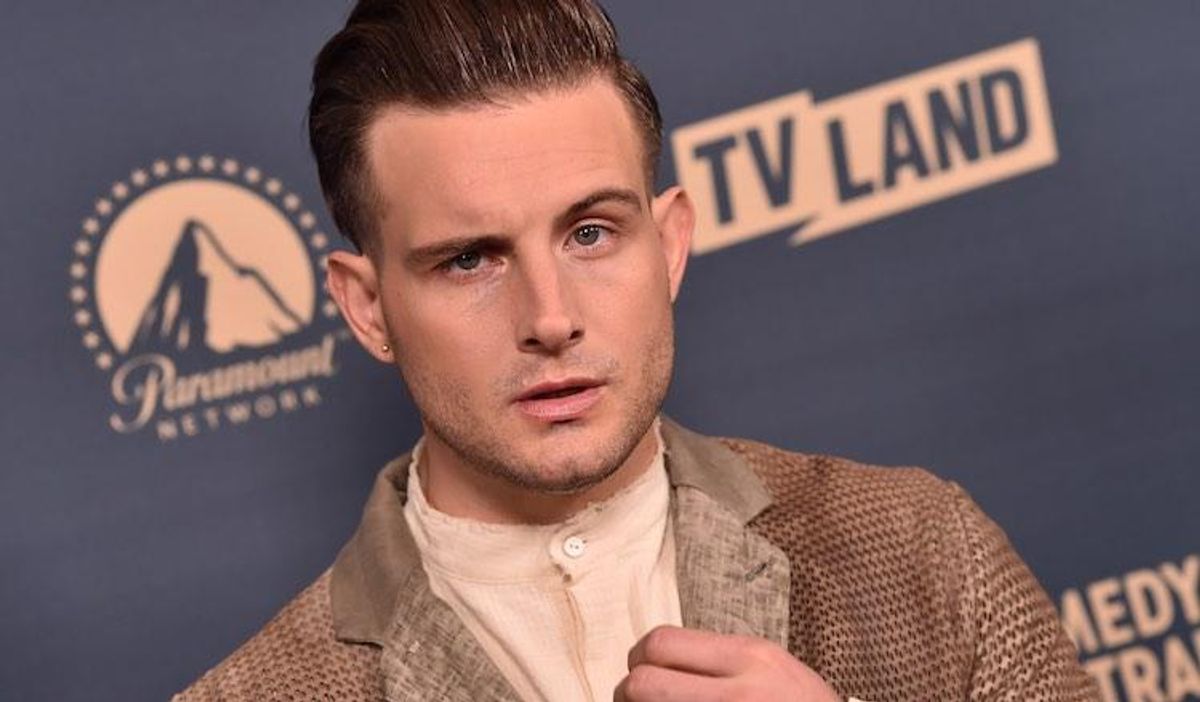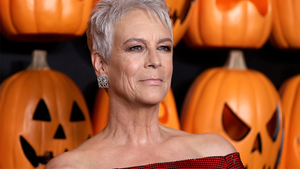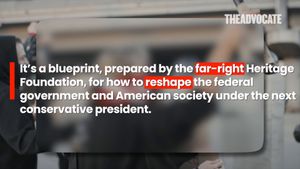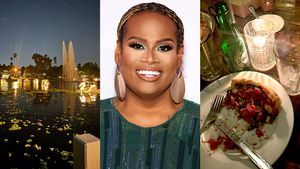Queer nonbinary actor and activist Nico Tortorella says knowing LGBTQ+ history is "of the utmost importance, no matter where you stand in the community, or just as a human being."
We caught up with the 32-year-old while they were serving as an ambassador for Stonewall Day, a global campaign created by Pride Live, whose mission is to "elevate awareness and support for the Stonewall legacy and the continuing struggle for full LGBTQ+ equality." The virtual event included a special message to the LGBTQ+ community from President Barack Obama as well as dozens of celebrity appearances.
"If you claim identity or expression linked to any community, you have to understand where it came from, how it started, and what it represents to the world," Tortorella continues. "I was definitely taught that early on by elders within, for example, the bisexual community. When I first started speaking publicly about bisexuality, I wasn't using the term 'bisexual' -- and I had a lot of elders reach out to me like, 'Hey, we understand that you're trying to raise awareness, but we fought so hard for that B to even exist in the acronym. You need to respect that if you're going to have this conversation.'"
"These things aren't necessarily taught anywhere," they add. "I mean, there really is no queer history being taught anywhere in the educational system. We as queer people need to seek out our history. You realize very quickly that queer history does not exist without racial history and socio-economic history and class history. They're all so intrinsically linked. In terms of Stonewall, we have our rights as queer people right now in the United States because of trans women of color [like] Marsha P. Johnson. Stonewall exists because of a riot. We are living in another riot right now [the uprisings for Black Lives Matter] and we have to understand what's at stake."
Likewise, says Tortorella, now is the time for white people to stop standing by silently, to stop making excuses, to check their privilege once and for all -- and to take a stand against systematic racism.
"Do your homework," they say. "Figure out how we got here in the first place and check yourself. Check how privileged it is to even feel timid to speak out, right? You are allowed that luxury to not have it affect you.... It's one thing to, say, check up on your Black and POC friends and coworkers, but more importantly, it speaks to the people that you know that are not necessarily racist but not adamantly antiracist. Speak to your family members, start from home -- and these conversations aren't easy, even for myself. I definitely come from a very white, privileged little bubble, and I was raised in so many ways to not see the injustices of the world."
While in quarantine with their wife, fitness, and health expert Bethany Meyers, Tortorella says they've kept busy and found inspiration in their new Instagram series, Space Between the Sheets (@nicotortorella).
"I needed to figure out a way to stay connected and continue to hold a queer space and build community, and my show kind of found itself," says Tortorella. "It's been so important for me in my own mental health, and I know for the community I built, for sure. I have conversations with people all over the world, five days a week for an hour. We really just focus on humanity, identity, and what it means to be alive in the new world."
The slower pace of life caused by the pandemic has been healing and therapeutic in many ways, too. "I am a workaholic and have been for a lot of years," Tortorella admits. "This is the biggest chunk of time I've had that I haven't had to be shooting something somewhere. It's really sacred to me and it's really medicinal. I'm looking at it in that way, rather than looking at it as a huge detriment to my career. Obviously, it is devastating, the impact it has had on our country and globally in terms of just life, but I've definitely been looking for the healing that exists within it."
Fortunately, Tortorella was able to complete filming on The Walking Dead: World Beyond, premiering on AMC in early October. They also explain how, strangely, the series prepped them for our new socially distant way of life.
"I shot The Walking Dead for basically six months right before quarantine started," they recall, "and I was living in this post-apocalyptic, zombie-infested land, so in many ways, it prepared me for life in the new world."
However, Tortorella says it was the character's sexuality, more than the whole zombie-killing thing, that initially attracted them to the role. "The only thing I knew about [the character of Felix] before I got the job was that he was queer," they say. "I've been wanting to play a queer superhero for years, and in so many ways that's exactly who Felix is."
The fact that in 2020, an out queer actor is able to play an out queer action hero on a mainstream TV series is a mark of progress not lost on Tortorella. "The biggest change is understanding the difference between gender and sexuality," they say. "Gender, as a whole, being something that we have been taught from day one, and so much of our own sexuality has been based on the binary gender and the way in which it has been forced upon us. It's more complicated and nuanced than who's sleeping with who."
"I think I have just really come to realize that we as a society, as a state of the human condition and consciousness, are at such elementary levels of understanding of sexuality, emotionality, relationships, identity, who we are and what it means to be alive and all of that affects our sexuality in so many ways," Tortorella concludes. "I am excited to see us just continue to advance in the right way."


















































































